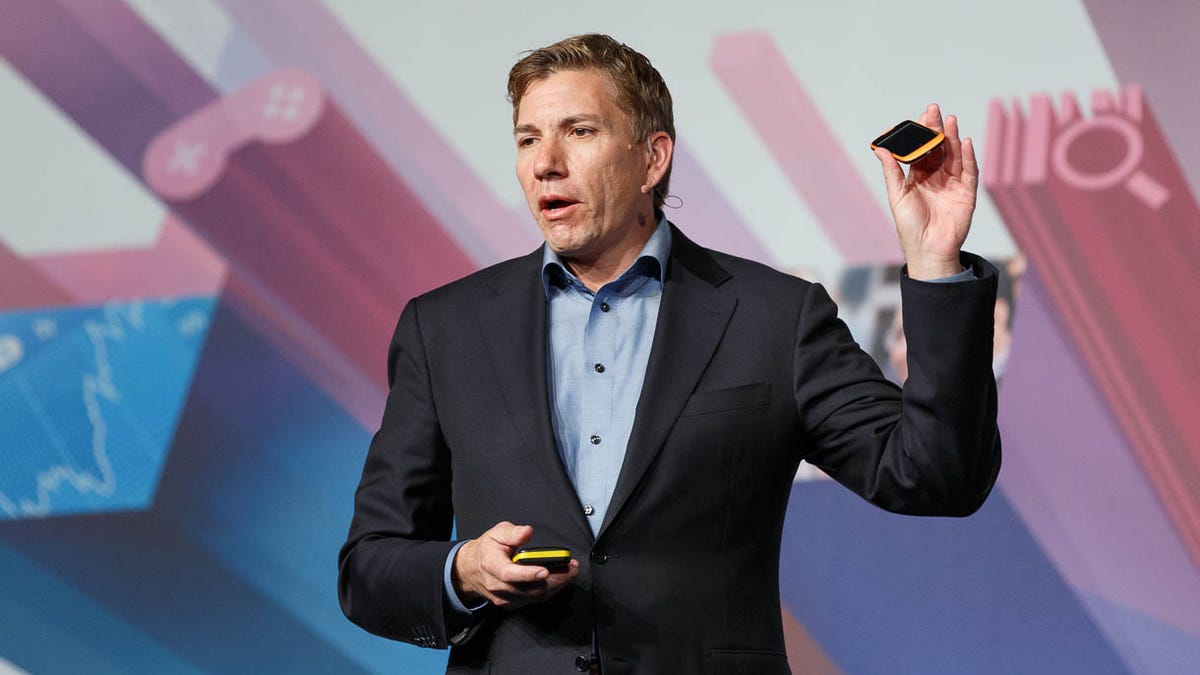Former Mozilla CEO to head security-software maker AVG
Gary Kovacs gets the nod to guide AVG, where he'll be forced to contend with problems not unlike those he faced at Mozilla.

The maker of one of the world's most popular free security suites has picked Mozilla's former chief executive, Gary Kovacs, to be its new leader.
Kovacs, who's in his mid-50s, comes to AVG several months after he stepped down as the CEO of Mozilla. AVG's previous CEO, J.R. Smith, moved to an advisory role with the company in March, after six years leading of leading AVG during a period of massive user adoption of its core product, AVG Anti-Virus Free.
"AVG has an established customer base: 150 million users. It really has the trust architecture to protect people," Kovacs said, noting that this was part of the reason he agreed to lead the company.
But arguably, Kovacs at his core is a mobile guy, and he cited the combination of mobile development and Internet growth as another reason he was attracted to AVG.
It took 22 years to get the first 2.5 billion people on the Web, he said, calling it an "incredible pace."
"What's more magical is that the next 2.5 billion are coming online in the next five years. More and more of us are going to put ourselves online in little bread crumbs here and there," he said. "We have locks for our doors, but not for the Web."
Noting that AVG is not just on smartphones and desktops, but -- with a recent deal signed with European car manufacturer Renault -- on cars too, Kovacs explained that AVG's goals are not dissimilar to Mozilla's, even though AVG is publicly held and Mozilla is a nonprofit.
"Mozilla had a strong mission that drove investments and product development. All the major platforms that people will publish themselves online with, we will support. The vision of AVG is to simplify ourselves online and protect ourselves," he said.
Though Kovacs remains on the board of directors at Mozilla, he stepped down from the company earlier this year, saying at the time that he'd accomplished his goals.
"In our mission to empower the next 2 billion Web users, we've made great advances in desktop and mobile and in our ability to lead at the pace of the market," he said. "With this solid foundation and a strong team in place, this is the right time for me to announce the transition plan and a vote of confidence in the abilities of the leadership team."
Kovacs came to Mozilla at a time when its signature product, Firefox, had lost some of its sheen as the best and brightest alternative to Microsoft's Internet Explorer. Google's Chrome browser landed in 2008, and had been winning people over for its minimalist interface and emphasis on speed.
During Kovacs' tenure, the company began shipping updates to Firefox more rapidly; struggled with a revolt from the browser's more conservative fans as it went through a trying transition process to be more mobile-friendly; and eventually completed work on the mobile operating system version of Firefox, called Firefox OS, which hit the market last month.
His challenges at AVG are not dissimilar. His new employer, with 150 million active customers, has been locked for years in a fight for dominance with other free security suite vendors such as Avast and Avira. Microsoft's overhaul of its consumer security offerings, now called Microsoft Security Essentials, has skyrocketed up the user adoption charts, and other products like ZoneAlarm and Panda have made inroads into the free antivirus field.
Kovacs explained in broad terms the difficulties that face the company in the near term. "The challenge is building a product that works in a consistent manner, no matter what platform you port that to," he said.
That's true, and his experiences at Mozilla during a time when the company strove to streamline Firefox on Windows, Mac, Linux, and Android, ought to help in that regard. But as the security market pivots toward protecting privacy while preventing malware, Kovacs' AVG faces an uneasy future.

